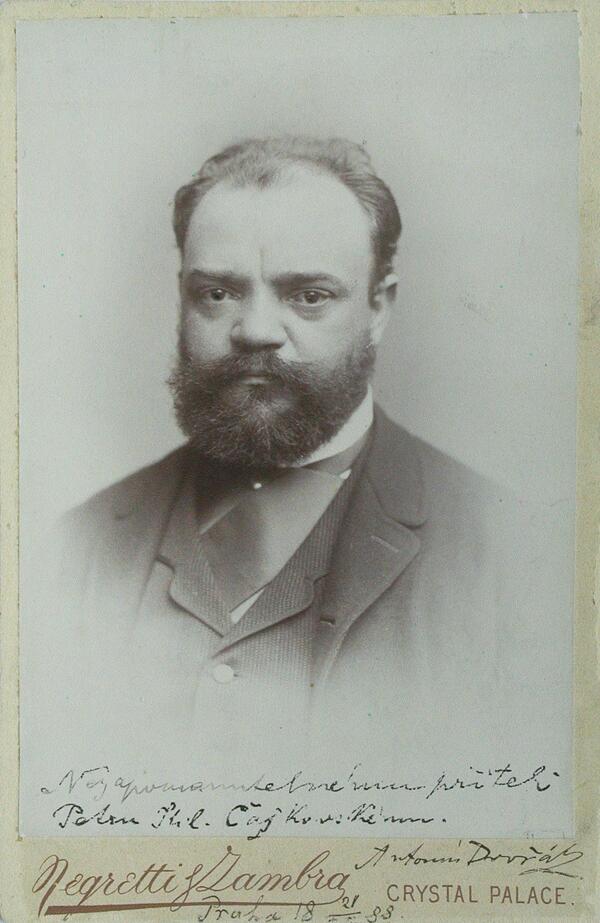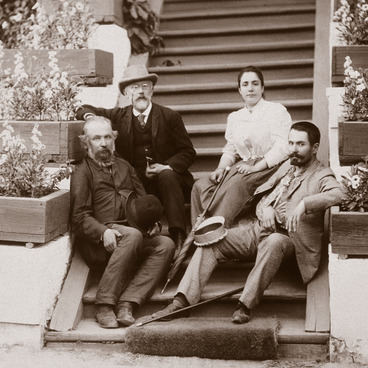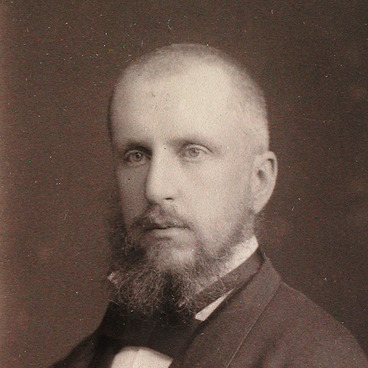Pyotr Tchaikovsky first visited the Czech Republic in 1888, on his tour of Europe. This was a great success for the composer: his performances always culminated with roaring applause, while famous cultural and public figures were eager to meet him. Tchaikovsky himself believed that Czech productions of his works were the best in Europe and perhaps even better than their Russian counterparts.
During that trip, on February 12, Tchaikovsky met one of the greatest Czech composers — Antonín Dvořák — at the National Theatre in Prague. Their meeting marked the start of what would be a close friendship and creative partnership between the two outstanding composers. Tchaikovsky and Dvořák saw each other every day while the Russian composer was staying in Prague: they met up at Dvořák’s house, as well as at concerts, plays, and meetings of the “Umělecká beseda” artists' forum. Tchaikovsky attended rehearsals of Dvořák’s Symphony No. 7, and Dvořák was present at all run-throughs of Tchaikovsky’s music, including ahead of the orchestra concert and ahead of the premiere of Eugene Onegin, Op. 24.
Antonín Dvořák was well-acquainted with Tchaikovsky’s work and made no secret of the fact he admired the talent of the Russian composer, whose music ultimately influenced Antonín’s work as well. He was so impressed by Eugene Onegin that he wrote an ecstatic letter to Tchaikovsky: “This is a wonderful work, full of warm feelings and poetry… this music lures you and penetrates so deeply into your soul that it cannot be forgotten”. We know that Tchaikovsky was deeply moved by that letter.
Tchaikovsky and Dvořák’s mutual liking was reflected not only in their correspondence: there are photographs indicative of a close friendship between the two composers. This shot is one of them. A commemorative inscription on the back reads: ‘To my unforgettable friend Pyotr IlyIch Tchaikovsky. Antonín Dvořák. Prague, December 21, 1888’. Tchaikovsky’s personal archive also includes a score of Dvořák’s Symphony No. 2 with a note: ‘To Pyotr Tchaikovsky. Prague memories. Antonín Dvořák. February 18, 1888’. During their meetings in Prague, Tchaikovsky also gifted a photo of himself to Dvořák, signed as follows: ‘To my dear and highly respected friend Antonín Dvořák, from your sincere admirer P. Tchaikovsky. February 20/8, 1888’.
In 1889, at the invitation of Tchaikovsky, Dvořák took part in concerts curated by the Imperial Russian Musical Society. The Russian composer was responsible for the creative content and insisted his friend go on tour. There is a record in his diaries: ‘Dvořák, famous as he is, would bring in a lot of authority and importance to our concerts…’ When the Czech composer responded to the invitation, Tchaikovsky wrote to Dvořák straight away: ‘Thank you, dear friend! You are doing a huge favor to the Moscow Musical Society…’
During that trip, on February 12, Tchaikovsky met one of the greatest Czech composers — Antonín Dvořák — at the National Theatre in Prague. Their meeting marked the start of what would be a close friendship and creative partnership between the two outstanding composers. Tchaikovsky and Dvořák saw each other every day while the Russian composer was staying in Prague: they met up at Dvořák’s house, as well as at concerts, plays, and meetings of the “Umělecká beseda” artists' forum. Tchaikovsky attended rehearsals of Dvořák’s Symphony No. 7, and Dvořák was present at all run-throughs of Tchaikovsky’s music, including ahead of the orchestra concert and ahead of the premiere of Eugene Onegin, Op. 24.
Antonín Dvořák was well-acquainted with Tchaikovsky’s work and made no secret of the fact he admired the talent of the Russian composer, whose music ultimately influenced Antonín’s work as well. He was so impressed by Eugene Onegin that he wrote an ecstatic letter to Tchaikovsky: “This is a wonderful work, full of warm feelings and poetry… this music lures you and penetrates so deeply into your soul that it cannot be forgotten”. We know that Tchaikovsky was deeply moved by that letter.
Tchaikovsky and Dvořák’s mutual liking was reflected not only in their correspondence: there are photographs indicative of a close friendship between the two composers. This shot is one of them. A commemorative inscription on the back reads: ‘To my unforgettable friend Pyotr IlyIch Tchaikovsky. Antonín Dvořák. Prague, December 21, 1888’. Tchaikovsky’s personal archive also includes a score of Dvořák’s Symphony No. 2 with a note: ‘To Pyotr Tchaikovsky. Prague memories. Antonín Dvořák. February 18, 1888’. During their meetings in Prague, Tchaikovsky also gifted a photo of himself to Dvořák, signed as follows: ‘To my dear and highly respected friend Antonín Dvořák, from your sincere admirer P. Tchaikovsky. February 20/8, 1888’.
In 1889, at the invitation of Tchaikovsky, Dvořák took part in concerts curated by the Imperial Russian Musical Society. The Russian composer was responsible for the creative content and insisted his friend go on tour. There is a record in his diaries: ‘Dvořák, famous as he is, would bring in a lot of authority and importance to our concerts…’ When the Czech composer responded to the invitation, Tchaikovsky wrote to Dvořák straight away: ‘Thank you, dear friend! You are doing a huge favor to the Moscow Musical Society…’



